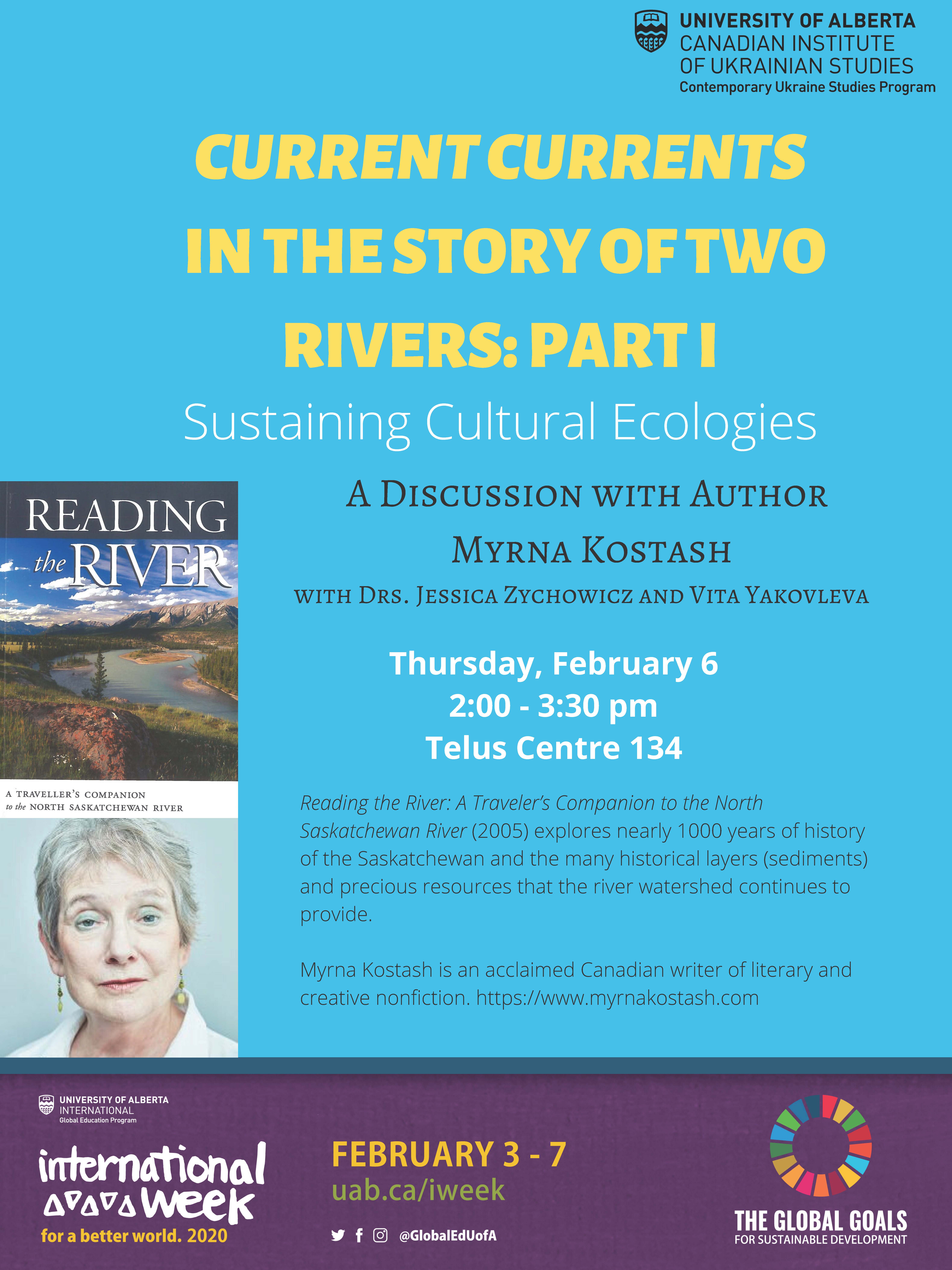Current Currents in the Story of Two Rivers: Part 1 Sustaining Cultural Ecologies A Discussion with Author Myrna Kostash
2:00 - 3:30 pmTelus Centre 134
Panelists:Myrna Kostash, writer of literary and creative nonfiction; and Dr. Jessica Zychowicz, Contemporary Ukraine Studies Program, Canadian Institute of Ukrainian Studies
Moderated by: Dr. Vita Yakovlyeva, researcher Sponsored by the Canadian Institute for Ukrainian Studies
This panel discussion will feature award-winning Edmonton-based author Myrna Kostash, whose lifelong work includes several creative nonfiction novels spanning the diverse peoples and places between Ukraine and Canada. She will share her processes in researching and writingReading the River: A Traveler's Companion to the North Saskatchewan River (2005), which explores nearly 1000 years of history of the Saskatchewan and the many historical layers (sediments) and precious resources that the river watershed continues to provide. How do the many historical layers (sediments) from our natural environments contribute to the diverse cultural ecologies we inhabit every day? UAlberta Postdoctoral Fellow Dr. Jessica Zychowicz and researcher Dr. Vita Yakovlyeva will explore these and other questions together with the author and audience.

Current Currents in the Story of Two Rivers: Part II Film Screening of God's River and Q & A with the Filmmakers
2:00 - 3:30 pm
Telus Centre 134
Filmmakers: Gabriela Bulisova and Mark Isaac
Moderators:Dr. Vita Yakovlyeva, researcher; and Dr. Jessica Zychowicz, Contemporary Ukraine Studies Program, Canadian Institute of Ukrainian Studies
Sponsored by the Canadian Institute of Ukrainian Studies
God's River(2018) is about eco-activism in the local communities along the Southern Bug River, the longest river entirely within Ukraine, measuring 774 km. The documentary takes place not far from the river's delta near the city of Mykolaiv, Ukraine, where managers of a Soviet-era nuclear reactor are concerned that climate change is reducing their access to cooling water. They seek to raise water levels behind a reservoir, flooding a sacred and historic island and further damaging the environmental health of the River. Challenges unfold through interviews with power company executives, nuclear experts, environmentalists, veterans, and community members who depend on the river and its surroundings for sustenance, recreation and cultural identification. There will be a Q & A after the screening with the filmmakers who in the course of making the film also created a photographic series about the more than 130 different ethnic cultures that live in this region.
